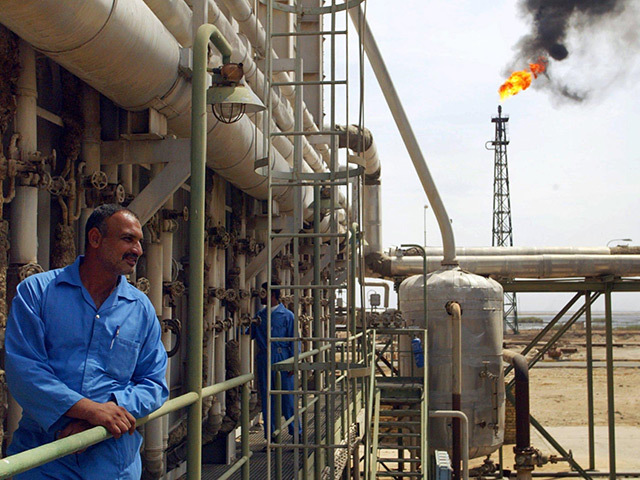
Iraq published data showing a rare level of detail for its oil production and exports, a week after inviting energy reporters to Baghdad to make a case that the country is pumping more crude than analysts and OPEC acknowledge.
The country’s state oil marketing agency released a statement on Sunday showing September production figures for each of the 26 fields it controls, plus a single output figure for the semi-autonomous Kurdish region, which manages its crude independently. Previous monthly statements showed just two figures: total production and total exports. The Oil Marketing Co., known as SOMO, also provided detailed data on exports and domestic consumption.
OPEC’s second-largest producer says it pumped more than 4.7 million barrels a day last month, several hundred thousand barrels a day more than oil-industry watchers recognize. The Organization of Petroleum Exporting Countries assesses output for its 14 members based on such secondary sources. Iraq wants the group to accept the ministry’s figures before a Nov. 30 meeting at which OPEC could limit production for its members.
Oil Minister Jabbar al-Luaibi complained about OPEC data at a meeting in September in Algiers. He adopted a milder approach last week, inviting reporters to Baghdad for a tour of the national museum and a detailed discussion of production figures. “We want you to see for yourselves what our production is,” he said on Oct. 23.
The field-specific data for September sheds light on how SOMO calculates Iraqi production. However, it doesn’t provide a breakdown of Kurdish production, which accounts for much of the difference between the data cited by SOMO and secondary sources.
“It’s an effort of transparency and backing up their numbers, but I’m not quite sure how effective it’s going to be,” Robin Mills, chief executive officer of consultant Qamar Energy, said by phone from Dubai. “The biggest discrepancy is likely to be in the Kurdish fields.”
Production from the Kurdish enclave in northern Iraq averaged 546,000 barrels a day last month, according to SOMO. That figure is an estimate because the central government has not received the latest production data from Kurdish authorities, SOMO Director General Falah Al-Amri said last week. SOMO bases its estimate on what Kurdish production was in 2013 and 2014, he said.
In the north of the country, the Kirkuk and Baba Gurgur fields produced 93,000 barrels a day for the federal North Oil Co., SOMO said. The nearby Bai Hasan and Avana fields pumped 275,000 barrels a day for the NOC.
The BP Plc-operated Rumaila oil field, Iraq’s largest, pumped an average of 1.4 million barrels a day in September, SOMO said. The two fields at West Qurna produced a combined 870,000 barrels a day, while output from Zubair was 390,000; Majnoon, 214,000; and Halfaya, 204,000.
